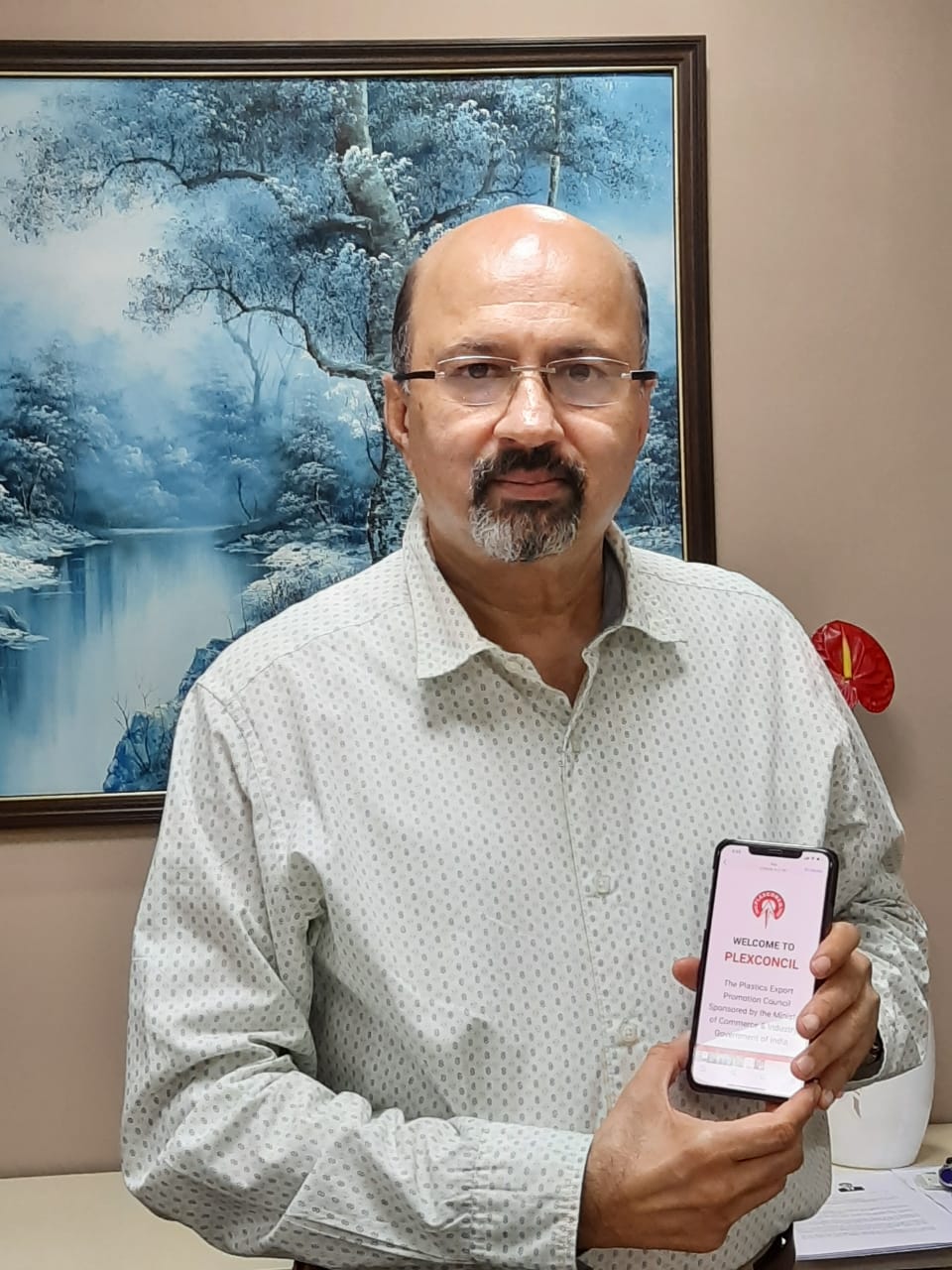The Plastics Export Promotion Council of India (PLEXCONCIL), the apex trade body for plastics exports sponsored by the Union Ministry of Commerce & Industry, Government of India, has unveiled the PLEXCONCIL mobile app for plastic exporter members and trade fraternity. Mr. Ravish Kamath (Chairman, PLEXCONCIL) unveiled the PLEXCONCIL app in the presence of Mr. Arvind Goenka (Vice Chairman, PLEXCONCIL) and Mr. Sribash Dasmohapatra (ED, PLEXCONCIL) – and dedicated the app to the nation’s plastics exporters, which includes many M/SMEs. The app can be easily downloaded from Google Playstore on Android phones and on iPhones.
The PLEXCONCIL app has all the basic features of a B2B export app but additionally it has the first-of-its-kind Buyer-Seller Connect marketplace on a 24X7 basis wherein the Council allows every member to display 3 products on this virtual marketplace. It offers Business Tools and facilitates Business Inquiries. It provides information on export schemes and various trade notifications by Union Ministry on a regular basis. It has a section on Events & Exhibitions for exporters.
Mr. Ravish Kamath, Chairman, PLEXCONCIL, said, “PLEXCONCIL app is a great aggregator tool to bring together all the plastic exporters, especially MSMEs on to a single platform available on mobile phones or digital devices. This is an ideal time for PLEXCONCIL to launch the app considering that every exporter is looking for new business development opportunities in the post COVID-19 scenario and geo-political shifts in global trade dynamics. The app offers unique Buyer-Seller Connect, Business Tools and Business Inquiry generation opportunities for those exporters targeting the US, Asia and the UAE amongst others. PLEXCONCIL seeks to increase India’s share in the global plastics export market and this is one of the initiatives to actively engage Indian exporters and motivate them to export more.”
Mr. Arvind Goenka, Vice Chairman, PLEXCONCIL, added, “India is currently ranked among the top five consumers of polymers in the world and the PLEXCONCIL app has the potential to unite 50,000 plus plastic processing units employing over 40 lakh trade constituents across the value chain. Plastics are amongst the fastest-growing industries in the world. The plastics industry in India is making significant contribution to the economic development and growth of various key sectors in the country which includes automotive, construction, electronics, healthcare, and FMCG. The plastic processing industry has the potential to bring in foreign investments and make India a global manufacturing hub.”
Mr. Sribash Dasmohapatra, ED, PLEXCONCIL, added, “The country’s plastics industry offers immense potential in terms of capacity, infrastructure and skilled manpower. Cumulative value of plastics export during April 2020 – June 2020 was USD 2.211 billion. Beating the slowdown, a double-digit growth was seen in Cordage & fishnets and Polyester films while a relatively lesser growth was witnessed in Floor coverings, leather cloth & laminates; Rigid packaging & PET preforms; and Pipes & fittings during June 2020. Recently, India’s plastics exports were primarily boosted by higher shipment of plastic raw materials and value-added plastic products including Woven sacks/FIBC, Plastic sheets/films/plates, Optical items, Laminates, Packaging items, and Medical disposables to the European Union, North America, Latin America & Caribbean, and North-East Asia.”
The Government is actively seeking to operationalize 18 plastic parks to boost exports and domestic production of plastics. The operationalizing of plastic parks is expected to further increase competitiveness and investments, achieve environmentally sustainable growth and adopt the cluster development approach to consolidate capacities in the plastics sector in addition to job creation. The Council believes that the Indian Plastics Industry offers huge growth opportunities due to lower per capita consumption as compared to world average coupled with low labour cost and availability of skilled manpower and training centers.



